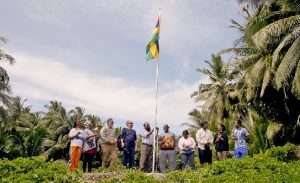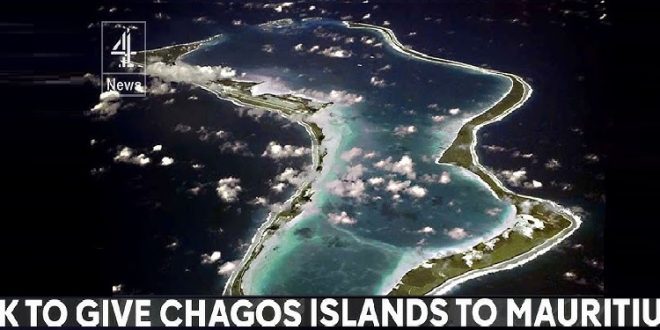12-02-2025
PORT LOUIS: Slam poet Geraldine Baptiste pulls no punches when telling the story of her “Granpapa”, one of the 1,500-plus people ripped from a peaceful existence on the Chagos Islands by the British to make way for a United States military base, most shipped “kouma zanimo” (meaning “like animals” in her native Creole) to a hellish fate more than 1,000 miles (1,610km) across the Indian Ocean in Mauritius.
 Belting out her poems in the Port Louis suburbs, the 26-year-old relates her grandfather’s memories of fishing in the crystalline waters of Peros Banhos atoll and feasting by firelight on “seraz pwason” (fish curry) and “kalou” moonshine, contrasting happy times with the horrors of his violent expulsion in the early 1970s and the decades of impoverished exile that followed many did not survive.
Belting out her poems in the Port Louis suburbs, the 26-year-old relates her grandfather’s memories of fishing in the crystalline waters of Peros Banhos atoll and feasting by firelight on “seraz pwason” (fish curry) and “kalou” moonshine, contrasting happy times with the horrors of his violent expulsion in the early 1970s and the decades of impoverished exile that followed many did not survive.
“Pena okenn antidot; Pou geri sa blesir; Ki ankor pe soupire,” she says, there is no cure for those wounds, still weeping more than half a century on.
That line hits especially hard right now, as Mauritius prepares to assume sovereignty over the 60-island Chagos archipelago after vanquishing the United Kingdom in a landmark decolonization case at the International Court of Justice (ICJ) six years ago. The nation is on a knife edge as it awaits the final nod from the US, which wants cast-iron guarantees on the security of one of its most valuable bases on the atoll of Diego Garcia.
Mauritius has been intent on reclaiming Chagos for decades, having been strong-armed by the UK into selling the jointly administered colonial territory for 3 million pounds in exchange for its independence in 1968. The ICJ victory is further sweetened by the promise of billions of pounds that the UK will reportedly pay in rent and back rent for Diego Garcia under a lease arrangement spanning 99 years.
In a bid to heal past wounds, Mauritius will manage a trust fund for Chagossians, allowing them to resettle on two of the Chagos Islands – Salomon and Peros Banhos but the islanders, some with roots on the territory stretching back to the 18th century, were locked out of the interstate talks.  And, as Baptiste describes it, local families have been torn apart by rows over whether they should accept Mauritian sovereignty over their homeland.
And, as Baptiste describes it, local families have been torn apart by rows over whether they should accept Mauritian sovereignty over their homeland.
“It’s like being in a tug of war between two sides that are killing each other,” says Baptiste. “We’re already a tiny community. It makes me so sad.”
Sidelined
Karen Walter, deputy editor-in-chief of Mauritius’s L’Express newspaper, has followed the twists and turns of the bilateral negotiations in recent years, noting that the views of the estimated 10,000 Chagossians now scattered across the UK, Mauritius and the Seychelles “have not counted for much”.
The sidelining of Chagossians was apparent during last year’s election, held 10 days after the UK and Mauritius announced they had reached a political agreement on the transfer. Former Prime Minister Pravind Jugnauth hit the campaign trail running, trumpeting “billions of rupees” in annual rent for Diego Garcia and opportunities to build hotels on the archipelago but many noted he made no mention of Chagossians.
Jugnauth has since been replaced by Navin Ramgoolam, who condemned his predecessor’s draft deal with the UK as a “sellout”. Last Tuesday, Ramgoolam told the Mauritian parliament that his new team had renegotiated an “inflation-proof” draft, featuring an undisclosed “front-loaded” payment. Crucially for Mauritius, the new terms appear to give it veto powers over future extensions of the 99-year lease arrangement for Diego Garcia.
Ramgoolam said he was “confident” everything would be finalized “in the coming weeks”. (Int’l Monitoring Desk)
 Pressmediaofindia
Pressmediaofindia




